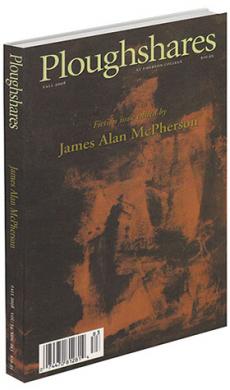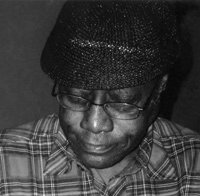rev. of Above the Houses by Susan Engberg
Above the Houses, short stories by Susan Engberg (Delphinium): In her fourth collection of stories, Susan Engberg explores the tentative, testing movements of people recently unmoored by change. Spouses die; marriages end or begin; there are new towns, new houses, new bodies to navigate. The landscape can feel hostile. A baby wanders alone down a sidewalk, holding a bottle marked by a "small handprint of blood." A deranged woman haunts a funeral, demanding coats from a dead woman’s closet. Yet in these nine stories, the gray, unforgiving territory we expect is surprisingly transformed; even a tired mill town offers the redemptive pause one character seeks, "the row of old experienced houses" creating "a surprising paradise, like a town of untouchable gold hidden all this time inside the other."
The pulse here is in Engberg’s deliberate and curious rejection of the brutality she could inflict on her characters. Opening the collection with a bruised eye, Engberg lets us know immediately that cruelty is possible: "Your fingers test from the smoldering, plum-colored center of impact down to the eyebrow, the swollen lid." Violence and the potential for abuse feel comfortable, worn, like television violence; the image of the abused woman is hideously bland. There’s even a mirror recording the image: "shiner, spiky new haircut, the shocked face of upheaval—in short, a sight." But this is Engberg’s point—we know this story, we could settle into trauma easily. Instead, Engberg jars the character, and the reader, with a swift, authoritative movement away from the mirrored bruise, and away from what feels like glutinous and wasteful voyeurism. The bruise is not what we think, and we won’t linger there. As Engberg informs us, "You decide not to dwell on the damage." There are other mysteries here: a compost pile, a friendship with a chubby child, the poetry of a hanging curtain: "The fine white material falls into a knuckle of itself, loops back into hiding and spills out again like the end of a sash girded around a waist."
Using the second person in the title story, Engberg teaches us how to read the stories that follow, how to look not at the mystery of pain and regret ("Your litany of losses is a useless scrap of grocery list on a table somewhere else") but, reminiscent of Grace Paley, at the mystery of resilience. How do we survive, rebuild, remain tethered here, to others? Paley’s characters joined protests, saved parks, and reveled in city neighborhoods and talk. Engberg’s often achieve a similar but less political romping appreciation for everyday life, alongside a heightened sense of mortality. Skinny-dipping is charged with an eerie joy, "Neither of them hesitates at the verge; there isn’t time, they wade quickly through the cold shallows and then plunge forward, outward into shocking, bracing, primal liquid, dark and darker in its depths"; yet, in the same story, so is peeing: "In the bathroom, urinating, she feels the downwardness of life, of its fleshly, earthbound quarter."
Throughout the collection, objects (toys, houses, clothing, paintings, sculptures), like bodies, take on a life at once sensual and spiritual, luring characters back to intimacy and solidity, back to the "durable mystery," as Laura in "Beginning" calls it. Laura, building a new relationship late in life, weights herself to the work, to seeing this new person, his skin, his hands, his history, with stones. She fills her pockets as the two walk the beach, arranges her collection across his deck, and, finally, fills her bag with stones and carries it onto the plane home, achieving the kind of grounded weightlessness we feel throughout this collection, a soaring that is full of flesh and ordinariness. —Sage Marsters
Sage Marsters’s story "Bear Story" was reprinted in Pushcart XXXII: Best of the Small Presses. She is currently finishing a collection of stories.

